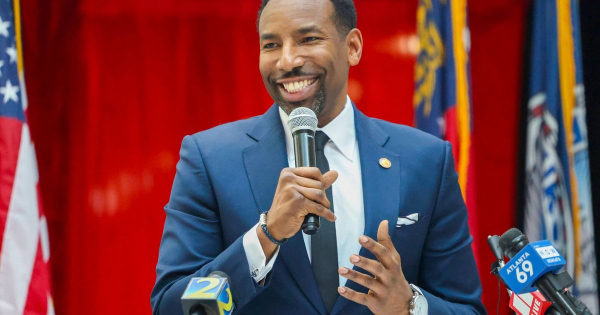Atlanta's Stake: Microsoft's Decision on 15,000 Jobs or Land Return
Atlanta's Mayor, Andre Dickens, is seeking clarity from Microsoft regarding the fate of a prime parcel of city land earmarked for the tech giant's corporate campus. Initially announced in 2021, Microsoft's plans for a new complex on a 90-acre site in Atlanta's Grove Park neighborhood promised to generate up to 15,000 jobs for the city. However, progress on the project stalled last year amid the company's reassessment of its global real estate strategy in light of the pandemic.
Mayor Dickens is set to engage with Microsoft in the coming week to ascertain the project's viability and potential outcomes. Should Microsoft opt out, Dickens is prepared to explore options to reclaim the land for the city's development or collaborate with a developer. He emphasizes the city's eagerness for Microsoft to proceed with the project or at least provide clarity on its intentions.
Microsoft, thus far, has remained tight-lipped on the matter, stating only that the Grove Park property is not for sale and that planning efforts will resume when deemed appropriate. Despite this uncertainty, Microsoft has expanded its presence in Atlanta, including the opening of a new office in the Atlantic Yards district in 2022, accommodating 2,000 employees.
This situation reflects a broader trend in the tech industry, as companies reconsider office space and workforce strategies post-pandemic, gravitating towards remote and hybrid work models. The implications are significant for major U.S. cities like Atlanta, already grappling with high office vacancy rates. Atlanta's office vacancy rate stood at about 24% by the end of last year, with over 20% of offices financed by commercial mortgage-backed securities experiencing delinquencies, the highest among metro areas.
As Atlanta navigates these challenges, the resolution of Microsoft's expansion plans holds considerable significance for the city's economic trajectory and underscores the broader shifts reshaping the urban landscape in the wake of the pandemic.
Dickens's Dilemma: Navigating Atlanta's Real Estate Landscape
Mayor Andre Dickens remains optimistic about the demand for amenity-rich Class A buildings in Atlanta, despite challenges posed by market fluctuations. While older Class B and C buildings struggle to attract tenants and investment, the skyline adorned with cranes symbolizes ongoing development efforts, including the transformative $5 billion Centennial Yards project in The Gulch.
This ambitious venture, led by CIM Group and supported by Atlanta Hawks owner Tony Ressler, promises a blend of hotels, restaurants, and offices, revitalizing the former rail yard. However, Mayor Dickens remains vigilant, recognizing the potential impact of declining office building values on the city's budget, heavily reliant on property taxes from commercial real estate.
Atlanta's residential market, on the other hand, continues to thrive, buoyed by strong job growth and a pandemic-induced real estate boom. Yet, affordability remains a pressing concern, exacerbated by the presence of institutional investors and corporate buyers who snatch up properties for investment purposes. With Atlanta serving as the largest market for such investors, Mayor Dickens highlights the plight of would-be homebuyers squeezed out by these capital-heavy players.
As the city grapples with these challenges, the contributions of Bloomberg's Michael Sasso, John Gittelsohn, and Amanda Albright shed light on the intricacies of Atlanta's real estate landscape. Moreover, the support from Microsoft Philanthropies underscores the collaborative efforts aimed at addressing pressing issues facing Atlanta's communities.
In conclusion, Mayor Andre Dickens's outlook on Atlanta's real estate market reflects a delicate balance between optimism and pragmatism. While amenity-rich Class A buildings continue to attract interest, the challenges posed by declining office values underscore the need for vigilant oversight. The transformative Centennial Yards project symbolizes the city's commitment to revitalization, yet Mayor Dickens remains cognizant of the fiscal implications for Atlanta's budget.
On the residential front, robust job growth and a pandemic-driven housing boom have propelled Atlanta's housing costs upward, posing affordability challenges for residents. The pervasive influence of institutional investors further compounds these challenges, highlighting the need for proactive measures to safeguard housing accessibility.
As Bloomberg's insightful reporting illuminates the nuances of Atlanta's real estate dynamics, the collaboration with Microsoft Philanthropies underscores the collective efforts to address pressing community needs. Moving forward, Mayor Dickens and city stakeholders must navigate these complexities with foresight and resilience, ensuring that Atlanta remains a vibrant and inclusive city for all its residents.

